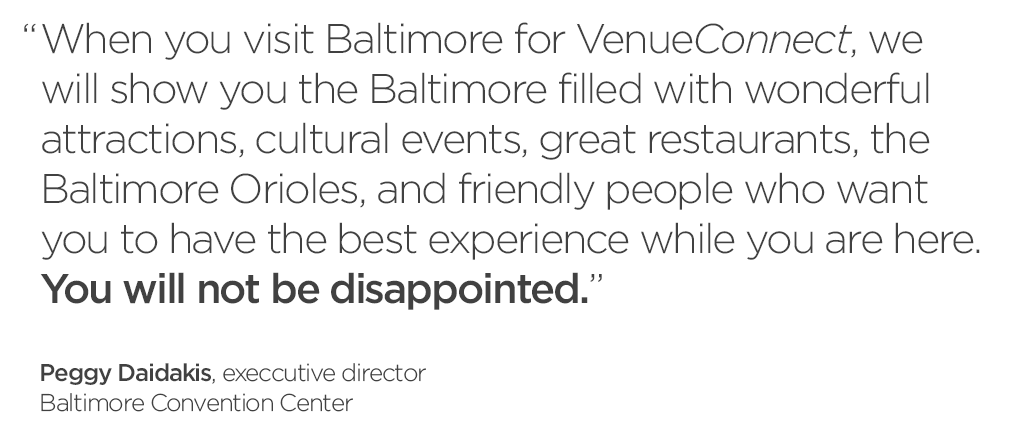A New Twist on the Sofa vs. Venue Front
We brought up the issue of live-streaming apps a couple of weeks ago here on the blog, and now we have a real-work example of them being used to broadcast a sporting event—the Floyd Mayweather-Manny Pacquiao fight on May 2, 2015.
“Rather than pay the $100 pay-per-view fee to watch the fight at home, many people watched streams of the fight on video-sharing apps such as Periscope and other technology,” Stuart Pfeifer reported for the Los Angeles Times. “Some boasted on social media that they were using Periscope to watch the fight for free.”
Pfeifer wrote that Top Rank, co-promoter of the fight, plans to pursue legal action against the streaming companies and individuals who broadcast the fight. Many of the streams came from people pointing their phones at their TVs.
“The number of streams was almost overwhelming,” Christina Warren reported for Mashable. “Some Periscopers were shooting in portrait mode (as is standard for Periscope), while others were shooting in landscape to capture more of a TV screen.”
Warren wrote that the stream she ended up watching the fight on had more than 10,000 people tuned in at the same time. And that’s what made it exciting.
“The experience of watching the fight on Periscope was inherently more social—and frankly, more interactive—than watching via one of the many pirate PPV or HBO streams available on the Internet,” Warren wrote.
Yes, an event is a much better experience in person, but we’re seeing now that live-streaming apps can create a new version of sociability. It’s a new twist in the sofa vs. venue front, and one venue managers, promoters, organizations…basically anyone that has a finger in this industry should be paying attention to.
(Image: Marketingland.com)
Unique Technology Proposed for Tokyo’s National Stadium

Artist rendering showing how fans can view live events from different angles on personal monitors at the National Stadium in Tokyo.
The Asahi Shimbun is reporting some interesting news about the National Stadium in Tokyo, which is the main facility for the 2020 Summer Olympic Games. The paper wrote that the Japan Sport Council invited several companies to participate in seminars about new technology for the stadium.
“Among the proposals at the latest seminar were toilets that will record a user’s blood pressure and body temperature simply by sitting on the seat, and dedicated monitors mounted to each spectator seat in the venue that will provide multi-angle views of the action on the playing field,” the paper reported. “Other ideas presented were providing information using a multilingual translation system; creating a Wi-Fi connection that would enable 80,000 people to use the Internet at the same time; the use of hydrogen energy; and the utilization of the stadium as an evacuation center in the event of a disaster.”
Think about that. Use the bathroom AND get your blood pressured check. Dang, I love technology.
(Image: Japan Sport Council)
Peggy Daidakis, Baltimore Convention Center, Wants You to Experience a Great City
“On behalf of all of us in Baltimore, I would like to extend my heartfelt thank you to all of my IAVM colleagues and friends. We are strong and committed to overcome the experiences that we are going through,” said Peggy Daidakis, executive director of the Baltimore Convention Center. “There is so much good about Baltimore that the media is not showing. Citizens cleaning up their neighborhoods after the destruction; children handing out water to the police; students organizing peaceful protests; food, beverages, and words of appreciation to the National Guard and other law enforcement officers for keeping us safe and maintaining order.”
IAVM is going to Baltimore. We are supporting a vibrant city, great venues, and inspiring members. Through your attendance at VenueConnect, through our events in the city (including our meet-up at Camden Yards!), and through the Foundation Legacy Project, we are preparing to bring the best of who we are and what we do to a wonderful host city.
“When you visit Baltimore for VenueConnect, we will show you the Baltimore filled with wonderful attractions, cultural events, great restaurants, the Baltimore Orioles, and friendly people who want you to have the best experience while you are here,” Daidakis said. “You will not be disappointed.”
The opportunity for meaningful connections is bigger than ever, with our two-day trade show and six networking events—at Camden Yards, the National Aquarium, the Baltimore Convention Center, Bulle Rock golf course—and more.
“Our friends and colleagues in Baltimore need our support now more than ever. We can all be part of the solution and the healing for this wonderful city,” said Kim Bedier, CFE, chair of IAVM. “I look forward to attending VenueConnect in Baltimore in August and hope you will join us for an outstanding professional development experience.”
“VenueConnect is shaping up to be a tremendous event for everyone that attends, and it could not be more important than now for all of us to commit to making IAVM’s 90th conference a resounding success for our association and the city of Baltimore,” said Vicki Hawarden, CMP, president and CEO of IAVM. “Our support from local members and the city of Baltimore has been fantastic, and it will be on full display when we all arrive this August.”
This summer’s conference marks the 90th year for IAVM, and plans are well underway for a celebration that truly embodies the association’s legacy of enduring support to the people, companies, and venues that bring unforgettable experiences to cities throughout the world.
“I am so lucky to be a part of an industry with so many good and caring people,” Daidakis said. “I have been overwhelmed with the personal emails from many of you. I cannot thank you enough. All the best to all of you, and see you this summer. We want you to come and experience a great city!”
Baltimore Symphony Orchestra Plays Free, Outdoor Concert
Music has the power to bring people together, and with that in mind the Baltimore Symphony Orchestra played a free, outdoor concert this afternoon (April 29) in front of the Joseph Meyerhoff Symphony Hall.
Quoting Leonard Bernstein, the orchestra wrote on its Facebook page: “This will be our reply to violence: to make music more intensely, more beautifully, more devotedly than ever before.”
The orchestra’s music director, Marin Alsop, wrote this on Facebook: “I am heartbroken for our dear city. With so much need alongside so much possibility, I hope we can use any opportunities we get to set an example and inspire others to join us in trying to change the world.”
Well done, Baltimore Symphony Orchestra. Well done.
Check out the video above from CNN of the orchestra performing for the city.
Region 4 Meeting: New Ideas and Inspiration
The 2015 IAVM Region 4 Meeting in Tacoma, Washington, April 19-21, was another resounding success. More than 125 attendees and 21 partner companies participated in the outstanding networking and educational opportunities provided over the three days. Drawing from the Pacific Northwest and Western Canada, the conference boasted a broad range of venue types and career levels, from those just started out to stalwart veterans.
Session highlights included a fantastic discussion led by Richard Andersen, CFE, of Lighthouse Management, on leadership styles. Under Andresen’s guidance, attendees self-determined their own leadership preferences and learned how they can affect their interactions with others. Steve Adelman led a rousing session on the reasonable actions a venue can take to help limit liability, and Tyler Borders encouraged the group to clearly define their company’s brand to help create a more authentic connection with our fans and guests.
The meeting also hosted several panel sessions from some of the region’s top minds. Whether it was best practices for EDM security, how to work the political system for capital improvements, or the latest trends in food and beverage, everyone was sure to come away with some great ideas to bring home. Of particular note were two sessions new to the meeting this year. Speed Networking was introduced on the opening afternoon, providing all attendees a chance to meet and interact in a rapid one-on-one setting for three minutes before moving on to someone new. Day Two provided great insight into the future with a fast-paced Pecha Kucha session hosted by young leaders throughout the region. Eight speakers had 20 slides and 20 seconds per slide to discuss their visions for the future of venue management. With these eight at the helm, the future is definitely bright.
As always, the chance to interact and network with colleagues from around the region was a big meeting highlight. Evening receptions hosted by the Greater Tacoma Convention and Trade Center and the Tacoma Art Museum provided beautiful backdrops and a relaxed atmosphere for old friends to catch up and new friends to be made. The annual golf tournament hosted at Chambers Bay Golf Course, home of the 2015 U.S. Open, proved a particular treat for those that participated.
As the attendees headed home, they were sure to leave with a head full of new ideas and inspiration, and a desire to make sure they make it to the next Region 4 Meeting in Seattle, Washington, May 10-12, 2016.
Do you want to receive a Front Row News weekly digest?
Categories
- Allied (856)
- Architecture (147)
- Arenas (744)
- Career (890)
- Convention Centers (889)
- Education (608)
- Events (1,528)
- Food & Beverage (193)
- Foundation (113)
- Guest Experience (1,482)
- Industry News (2,253)
- Leadership (1,872)
- Marketing (150)
- Membership (1,985)
- Music (212)
- Performing Arts Centers (453)
- Professional Development (398)
- Research (127)
- Safety & Security (425)
- Sports (763)
- Stadiums (607)
- Student (159)
- Technology (515)
- Ticketing (92)
- Touring (82)
- Trends (357)
- Uncategorized (771)
- Universities (216)
- Video (25)
- Young Professional (198)
Twitter Feed
- Twitter feed loading
Recent Posts
- GEODIS Park Selects Allied Universal As Its Preferred Event Services Provider
- Venuworks Appoints Marc Solis as Executive Director of the Fresno Convention and Entertainment Center
- Los Angeles Convention Center Diverts 8,000 Pounds of Wood Waste to Local Foundation Supporting Fire Victims
- Fort Worth Unveils Plans for Phase 2 of Convention Center Transformation
- San Diego Convention Center CEO Announces Retirement After a Decade of Leadership
Categories
- Allied
- Architecture
- Arenas
- Career
- Convention Centers
- Education
- Events
- Food & Beverage
- Foundation
- Guest Experience
- Industry News
- Leadership
- Marketing
- Membership
- Music
- Performing Arts Centers
- Professional Development
- Research
- Safety & Security
- Sports
- Stadiums
- Student
- Technology
- Ticketing
- Touring
- Trends
- Uncategorized
- Universities
- Video
- Young Professional
Archives
- February 2026
- January 2026
- December 2025
- November 2025
- October 2025
- September 2025
- August 2025
- July 2025
- June 2025
- May 2025
- April 2025
- March 2025
- February 2025
- January 2025
- December 2024
- November 2024
- October 2024
- September 2024
- August 2024
- July 2024
- June 2024
- May 2024
- April 2024
- March 2024
- February 2024
- January 2024
- December 2023
- November 2023
- October 2023
- September 2023
- August 2023
- July 2023
- June 2023
- May 2023
- April 2023
- March 2023
- February 2023
- January 2023
- December 2022
- November 2022
- October 2022
- September 2022
- August 2022
- July 2022
- June 2022
- May 2022
- April 2022
- March 2022
- February 2022
- January 2022
- December 2021
- November 2021
- October 2021
- September 2021
- August 2021
- July 2021
- June 2021
- May 2021
- April 2021
- March 2021
- February 2021
- January 2021
- December 2020
- November 2020
- October 2020
- September 2020
- August 2020
- July 2020
- June 2020
- May 2020
- April 2020
- March 2020
- February 2020
- January 2020
- December 2019
- November 2019
- October 2019
- September 2019
- August 2019
- July 2019
- June 2019
- May 2019
- April 2019
- March 2019
- February 2019
- January 2019
- December 2018
- November 2018
- October 2018
- September 2018
- August 2018
- July 2018
- June 2018
- May 2018
- April 2018
- March 2018
- February 2018
- January 2018
- December 2017
- November 2017
- October 2017
- September 2017
- August 2017
- July 2017
- June 2017
- May 2017
- April 2017
- March 2017
- February 2017
- January 2017
- December 2016
- November 2016
- October 2016
- September 2016
- August 2016
- July 2016
- June 2016
- May 2016
- April 2016
- March 2016
- February 2016
- January 2016
- December 2015
- November 2015
- October 2015
- September 2015
- August 2015
- July 2015
- June 2015
- May 2015
- April 2015
- March 2015
- February 2015
- January 2015
- December 2014
- November 2014
- October 2014
- September 2014
- August 2014
- July 2014
- June 2014
- May 2014
- April 2014
- March 2014
- February 2014
- January 2014
- December 2013
- November 2013
- October 2013
- September 2013
- August 2013
- July 2013
- June 2013
- May 2013
- April 2013
- March 2013
- February 2013
- January 2013
- May 2012
- March 2012
- December 2011
- November 2011
- October 2011
Recent Comments
- Frank Bradshaw, Ph.D., CVE on John Meyer, CVE, a Tireless Advocate of Certification for Venue Professionals, Has Died
- Neil Sulkes on Hilary Hartung, Friend to Many in Venue Marketing, Has Left Us
- Jason Parker, CVE on The Devastation of Hurricane Helene and How We Can Support One Another
- Larry Perkins on Touhey Testifies Against Speculative Ticketing Before Congressional Subcommittee
- Peter Secord on Major Players for Planned Elkhart Amphitheater Were in the Mix at VenueConnect





